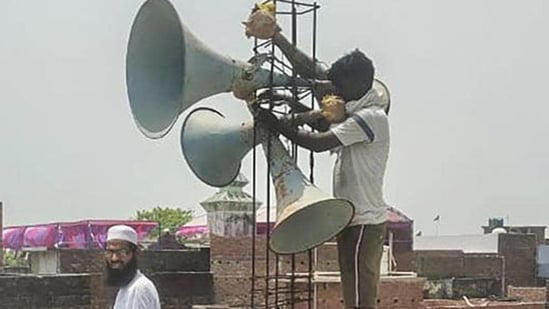Indore, May 28: In response to the state government’s recent directive, the local administration in Indore has removed over 400 loudspeakers from various religious sites within 48 hours. This action, which affected temples, mosques, and gurudwaras, has sparked opposition from Muslim religious leaders.
Collector Ashish Singh confirmed that the removal of the loudspeakers was carried out on the instructions of the state government, emphasizing that compliance with the directive was mandatory for all. The decision aligns with the provisions of the Noise Pollution (Regulation and Control) Rules, 2000, and guidelines issued by the Supreme Court and the high court, which regulate noise levels in public and religious spaces.
Indore’s Shahar Qazi, Mohammad Ishrat Ali, led a delegation to meet with Collector Singh to express concerns over the blanket removal of loudspeakers. Ali argued for the reinstatement of loudspeakers within permissible noise limits, as prescribed by the Supreme Court. He highlighted that the community’s grievances were not limited to religious sites, pointing out that DJs at weddings and other functions also contribute significantly to noise pollution. “Why are restrictions being imposed only on loudspeakers in religious places?” Ali questioned.
Chief Minister Mohan Yadav, who assumed office in December 2023, has been proactive in addressing noise pollution. His administration has banned the use of loudspeakers and DJs at volumes exceeding prescribed limits in both religious and public spaces. This initiative is part of a broader effort to enforce the Noise Control Act and maintain public tranquility.
In addition to removing loudspeakers, the state government has established flying squads in all districts to monitor and curb noise pollution. This move has seen the removal of 3,238 loudspeakers statewide as part of an ongoing drive to ensure compliance with noise regulations.
The decision has underscored the administration’s commitment to reducing noise pollution, albeit amidst some public opposition, particularly from religious communities seeking a balance between tradition and regulation.




